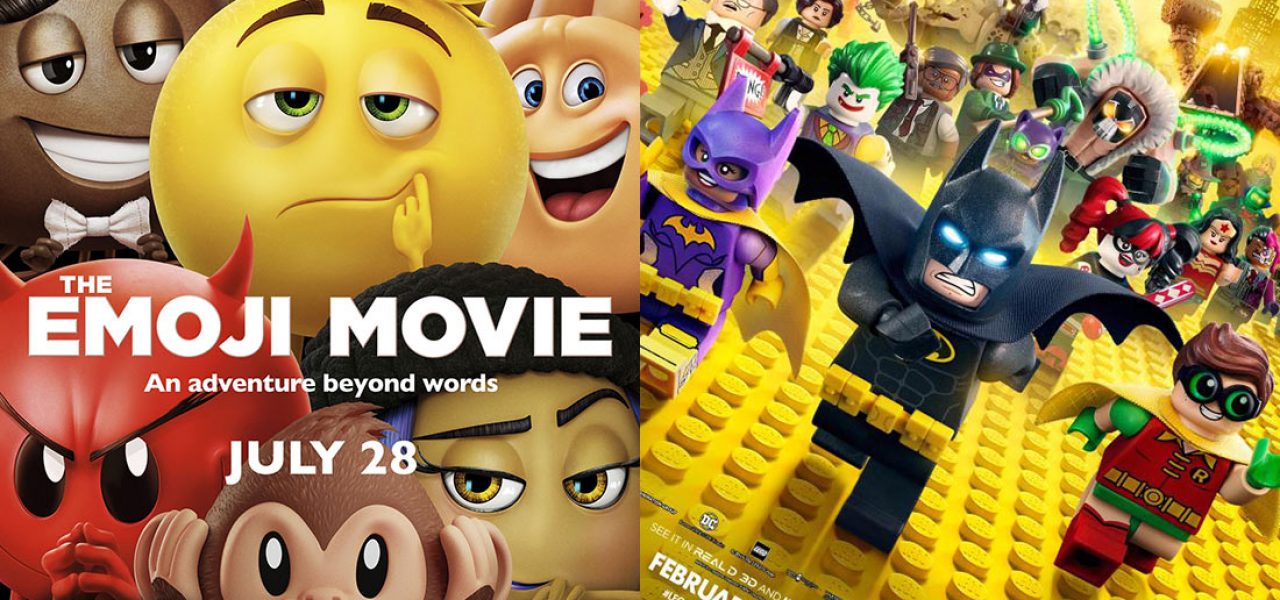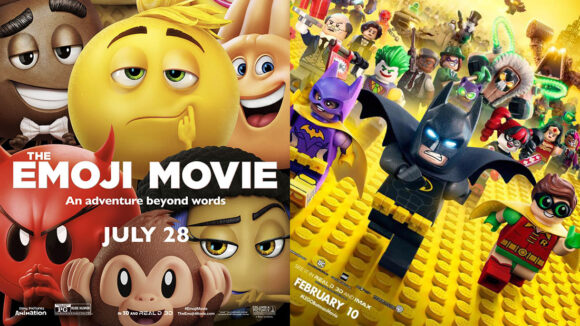

Why Hollywood Can’t Stop Making Films About Lego, Emojis, And Angry Birds
This much we know: Hollywood can’t stop making films about Lego, emojis, and Angry Birds.
But what is this newfound obsession with making films based on existing I.P. (intellectual property) that don’t have any stories, characters, or mythologies? It used to be that studios would buy stories and characters that already existed in books and comics and videogames, but increasingly, studios look to develop non-narrative I.P. — brands, toys, and other vague concepts that have nothing else attached to them.
The single best insight into this phenomenon is this piece by Alex French, published in the New York Times magazine a few weeks ago. Even though the piece doesn’t provide all the answers, it helps describe the scope of the situation and provides valuable insights for anyone in animation wishing to better understand what’s happening right now.
French’s piece revolves around veteran Hollywood producer Tripp Vinson and his efforts to develop an animated feature around the mobile game Fruit Ninja. Like the other films that comprise this trend, Vinson’s idea is unmotivated by any artistic intent; it is a pure capitalistic play with profit as its only motive.
The project’s lack of creative foundation is highlighted in the article through its detailed description of how screenwriters J. P. Lavin and Chad Damiani worked to figure out a Fruit Ninja script:
When [Lavin and Damiani] were approached by Vinson, the first thing they did was download Fruit Ninja. Lavin called Damiani after playing for a while. They agreed: There was nothing there. Just fruit. Their work on projects like Flat Stanley, though, had shown them that having less to work with provided a greater degree of creative freedom. Lavin and Damiani spent hours discussing the essence of Fruit Ninja. “For me, it is the messiness, the immediate release of destroying fruit,” Damiani told me. For Lavin, the soul of the game is the feeling of “frenzy.” “There’s like a 60-second version of it where you can see how fast you can kill fruit,” he says, which “puts your brain in this weird, bizarre focused place.” As he sees it: “This would be the movie to go see stoned. I can imagine going in and seeing it in 3-D — just imagine a 20-foot-high pineapple monster. That shot of yellow and orange. I’d go see this movie a dozen times.”
The passage about the different ideas they’ve come up with for a Fruit Ninja feature is as depressing a read as one might expect:
Early on, Lavin and Damiani struggled to find a narrative entry point. They started with the premise that there was a magic book and an evil fruit overlord. Vinson rejected that idea. Their next concept involved scientific experiments on fruit gone wrong. Vinson didn’t like that either. Eventually, a working narrative emerged: Every couple of hundred years, a comet flies by Earth, leaving in its wake a parasite that descends on a farm and infects the fruit. The infected fruit then search for a human host. The only thing keeping humanity from certain doom is a secret society of ninjas who kill the fruit and rescue the hosts by administering the “anti-fruit.” The produce-slaying saviors are recruited from the population based on their skill with the Fruit Ninja game. With civilization in imminent danger, a cadre of unlikely heroes materializes — a little boy, a college-age girl, two average guys. The action starts after each of the story’s heroes returns home after a horrible day and plays Fruit Ninja to relieve some stress. Damiani told me this aligns with the Fruit Ninja brand: “Anybody can play. Anybody can be a master.”
Warner Bros. subsidiary New Line Cinema has already bought Fruit Ninja – the animated feature – but they’re still trying to decide whether to make it or not. The returns on The Emoji Movie will play a role in determining New Line’s decision to proceed or not.
But whether New Line makes the film, everyone else in animation is already headed down an I.P.-driven path. It’s a path in which conveying the essence of a brand is considered to be a worthwhile creative endeavor for a filmmaker.
STX and Reel FX are getting ready to start production on a movie based on Uglydolls, Open Road Films will distribute a movie based on the German toy line Playmobil, Amazon is developing a feature around Emily the Strange merchandise, Warner Bros. has multiple Lego sequels and spinoffs coming up, Sony has an Angry Birds sequel, Dreamworks has a Trolls sequel, and Lionsgate will release a My Little Pony feature in October. The majority of announced projects in development at American animation studios are based on existing I.P. – and many of those I.P. are non-narrative.
My Little Pony is based on a Hasbro toy line, and Hasbro has gone all-in on the trend. It has been working feverishly to develop all of its brands into Hollywood franchises – some (Transformers) more successfully than others (Battleship). But their next step is even more ambitious: they’re looking to buy an actual film studio.
Hasbro tried (unsuccessfully) to buy Dreamworks Animation a few years ago, and more recently they put in a bid for Lionsgate, a deal that fell apart earlier this month.
In other words, if you think this trend is getting a bit tired, think again. Hollywood is only getting started.

.png)